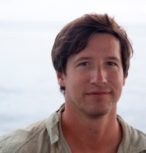DNA reveals the past and future of coral reefs
New DNA techniques are being used to understand how coral reacted to the end of the last ice age in order to better predict how they will cope with current changes to the climate. James Cook Univer

From 2005 to 2022, the main node of the ARC Centre of Excellence for Coral Reef Studies was headquartered at James Cook University in Townsville, Queensland (Australia)








Abstract: Poaching regularly negates the effectiveness of the world’s marine protected areas. Curtailing poaching necessitates gaining a thorough understanding of the problem; upon which targeted behavioural and management interventions can be designed. Yet, assessing and understanding poaching is inherently difficult considering its illegal, cryptic, and often socially undesirable nature. During his thesis, Brock applied a multi-disciplinary approach in the Great Barrier Reef Marine Park, Australia to address three research gaps that are critical for curtailing poaching: 1) reliably measuring and estimating poaching levels; 2) understanding the influences or behavioural drivers of poaching; and 3) engaging the latent surveillance and enforcement capacity of fishers. Please join us to learn more about Brock’s endeavours to investigate, understand, and provide information to curtail poaching behaviours in marine protected areas.
Biography: Brock grew up in rural Minnesota baling hay, wrangling horses, and trapping the odd backcountry beaver. He quickly developed a love of the outdoors and the natural world while quietly observing the role that humans play as environmental stewards. Brock’s previous studies have included aquatic biology, as well as sociological disciplines such as nonviolent communication and conflict resolution. During his travels through India, Southeast Asia and the South Pacific, he witnessed a seemingly widespread lack of environmental knowledge and stewardship that resulted in the degradation of the regions’ natural resources, including the coral reefs. After several sunset reflection sessions, Brock decided to continue racking up his student debt and complete a masters degree in marine biology at JCU. Brock is now at the end of a PhD, where he utilized multi-disciplinary approaches to investigate poaching behaviours in marine protected areas. Brock recently accepted a CSIRO Postdoctoral Fellowship Position in Data Analytics, Fisheries, Behaviour, and Criminology. During his time in Hobart, he will be investigating compliance behaviour related to Illegal, Unreguated and Unreproted Fishing.
New DNA techniques are being used to understand how coral reacted to the end of the last ice age in order to better predict how they will cope with current changes to the climate. James Cook Univer
A new study on the effects of climate change in five tropical countries has found fisheries are in more trouble than agriculture, and poor people are in the most danger. Distinguished Profess
James Cook University researchers have found brightly coloured fish are becoming increasingly rare as coral declines, with the phenomenon likely to get worse in the future. Christopher Hemingson, a
Researchers working with stakeholders in the Great Barrier Reef region have come up with ideas on how groups responsible for looking after the reef can operate more effectively when the next bleaching
Abstract: As marine species adapt to climate change, their heat tolerance will likely be under strong selection. Individual variation in heat tolerance and its heritability underpin the potential fo
Abstract: The Reef Ecology Lab in KAUST’s Red Sea Research Center explores many aspects of movement ecology of marine organisms, ranging from adult migrations to intergenerational larval dispersal
Abstract: Macroalgal meadows are a prominent, yet often maligned component of the tropical seascape. Our work at Ningaloo reef in WA demonstrate that canopy forming macroalgae provide habitat for ad
Abstract: Sharks are generally perceived as strong and fearsome animals. With fossils dating back at least 420 million years, sharks are not only majestic top predators but they also outlived dinosa
Abstract: Connectivity plays a vital role in many ecosystems through its effects on fundamental ecological and evolutionary processes. Its consequences for populations and metapopulations have been
Abstract: Evolution of many eukaryotic organisms is affected by interactions with microbes. Microbial symbioses can ultimately reflect host’s diet, habitat range, and even body shape. However, how
Abstract: The past few years have seen unprecedented coral bleaching and mortality on the Great Barrier Reef (GBR) but the consequences of this on biodiversity are not yet known. This talk will expl